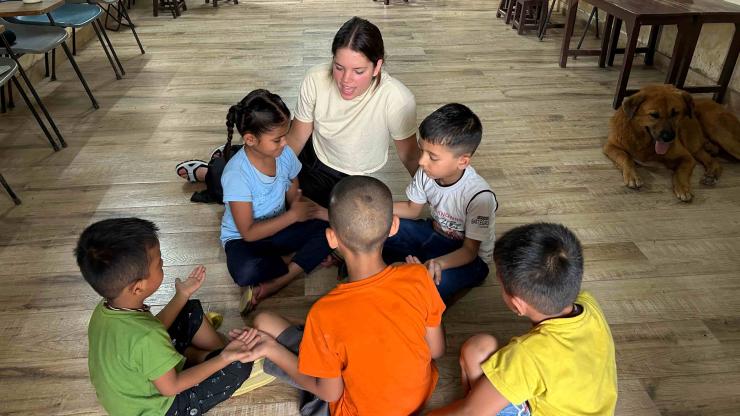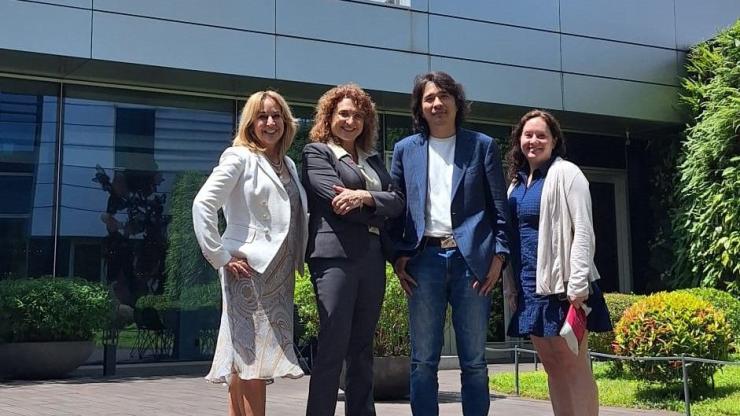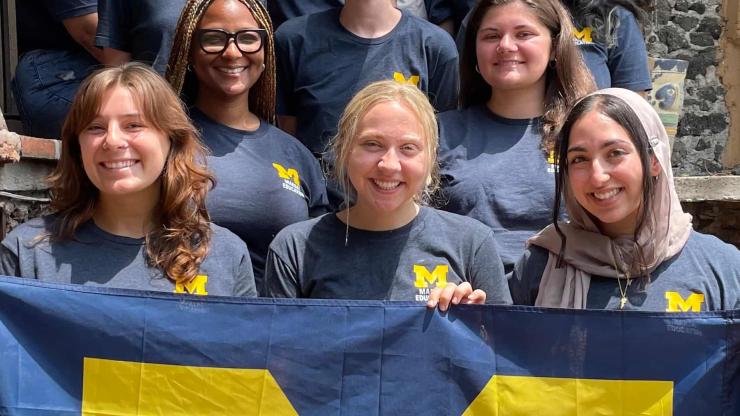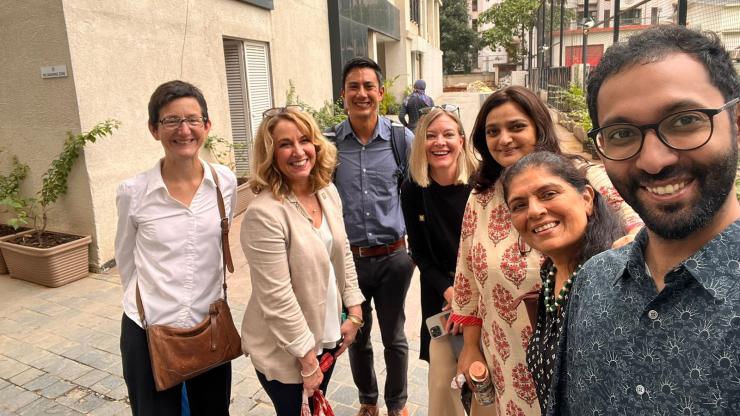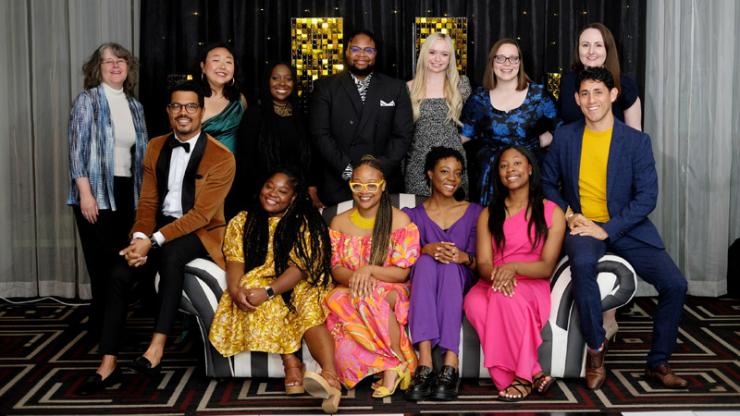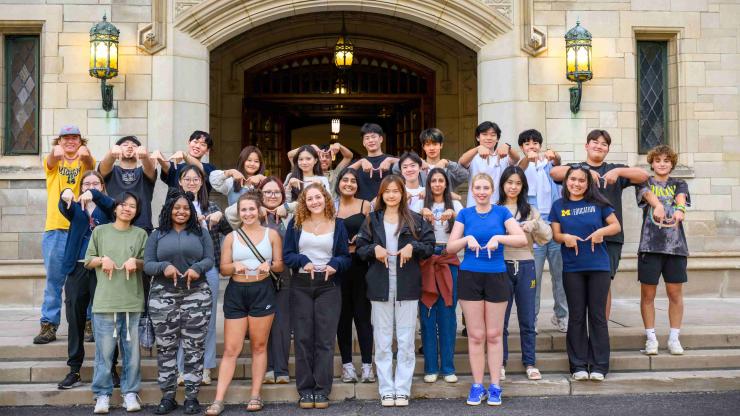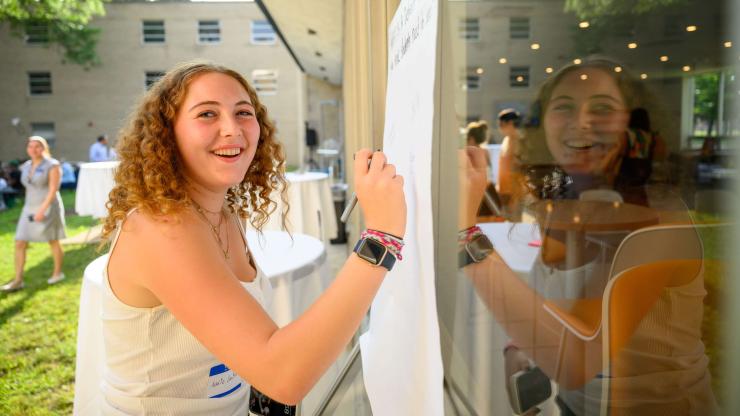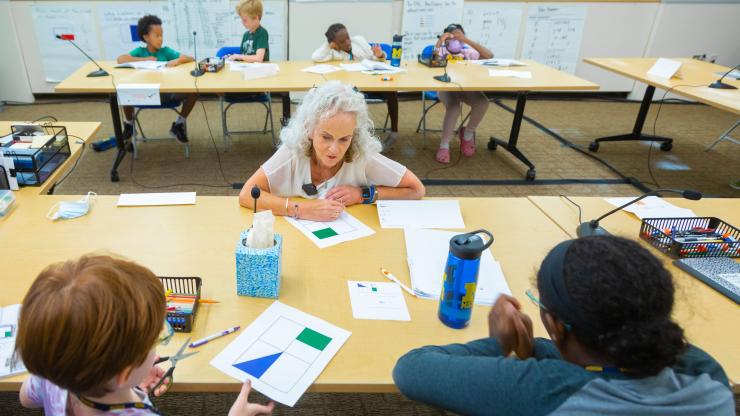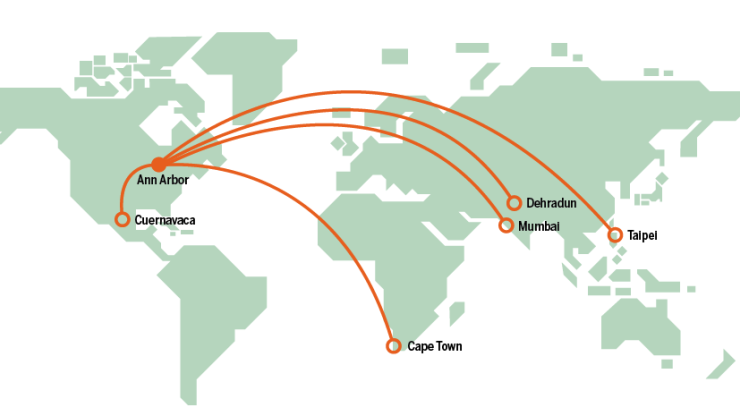The Marsal School's First Online Master of Arts Focuses on Leading Educational Innovation and Transformation
The Michigan Association of State Universities approved the Marsal School's first online master's degree, launching in 2025
On October 18, 2024, the Michigan Association of State Universities (MASU) approved the first fully online master's degree offered by the Marsal School. Beginning with the fall 2025 semester, the Master of Arts in Leading Educational Innovation and Transformation will make a degree from the Marsal Family School of Education accessible to more students than ever before.
"With our first fully online master's degree," says Dean Elizabeth Birr Moje, "we are creating greater access to the faculty in our world-renowned school, while leveraging our expertise in creating rich and deep online learning experiences to reach students everywhere. The focus on innovation and transformation is aligned with our commitment to using research to continuously improve education. For example, education leaders who pursue this degree will be equipped with skills to navigate the rapidly changing landscape of education technology tools such as AI with attention to equity and justice for all learners."
The program is designed to offer current teachers and those involved in schools or other education-centered organizations an opportunity to accelerate their careers by becoming school leaders and educational leaders in various settings. Because these learners may not be able to leave their current jobs in Michigan, or around the country, to attend classes in Ann Arbor, Marsal School faculty members have worked closely with U-M's Center for Academic Innovation (CAI) to develop a rich learning experience that can be accessed virtually, with numerous opportunities for interaction between students and professors.
This master's degree embodies a commitment to explore, cultivate, and implement innovative ideas and strategies designed to fundamentally shift the current educational landscape. The curriculum emphasizes fostering creativity and adaptability, improving learning outcomes, and addressing the complex challenges facing education today. Each learner participating in the program will engage deeply with these ideas, tailoring their learning to their unique environments, supported by the continuous guidance and encouragement of Marsal School faculty. The program will focus on blending practice, research, and empowerment to develop the next generation of exceptional and justice-centered educators.
The comprehensive curriculum allows learners to actively engage in transformation and innovation through a justice-centered lens, says program designer and Clinical Associate Professor Maria Coolican. The program centers the Marsal School's dije values of diversity, inclusion, justice, and equity in numerous ways.
"We can't expect our students to engage with dije if we as faculty don't model the way," Coolican says. "So we challenge ourselves to have courageous conversations and to embrace the discomfort that can sometimes emerge from those conversations. We challenge ourselves to be present to the inequities that exist in our communities and in our schools and in other educational settings, and we further challenge ourselves to continue to work toward transformation and change in those same settings. We look both inward and outward as we examine our own histories and behaviors, and we commit to doing better—much better. Those in our master's program in Leading Educational Innovation and Transformation will be challenged to do the same."
Four foundational courses will provide an understanding around leading for transformation and understanding how people learn; three courses focus on continuous improvement; and a capstone course challenges students to apply learning that will impact their school environment.
The courses themselves will feature recorded lectures, readings, participation on discussion boards, and writing reflection pieces. Independent and collaborative assignments like projects, papers, and research will also be incorporated. All courses scaffold on one another with a common thread of building toward the capstone project.
In total, the program is 24 credits, earned by completing eight 3-credit courses. Each course is seven weeks long. Students will complete two courses per 15-week semester so that the degree can be completed in four academic terms. Students will complete these courses with their cohort; new cohorts begin in August, January, and May of each year.
Explore the Curriculum
- Foundations for Leading provides a comprehensive overview of the historical, theoretical, and philosophical foundations that have shaped today's educational systems and processes.
- How People Learn is a foundational course in learning theories and their educational applications. Students examine learning from the perspective of educational justice and equity, always seeking to understand how power, privilege, oppression, and resistance impact learners, learning contexts, and pedagogies.
- Action Research empowers individuals to become scholarly practitioners who can effectively use action research to drive transformation and foster innovation within educational settings.
- Entrepreneurial Leadership is designed to develop the entrepreneurial mindset and skills essential for leading innovation in educational settings. Emphasis is placed on the evolving landscape of education with a focus on the methodologies of entrepreneurial leadership.
- Data-Driven Decision Making is designed for students to explore and understand the critical role of data in leading educational transformation and driving innovation in schools and other educational settings. Students will understand the essential principles of assessment literacy, including how to collect, analyze, and interpret data accurately.
- Transformative Instructional Practices focuses on the innovative principles of collaboration, distributed leadership, inquiry, and cultural competence, which are essential to instructional leadership. This course is designed to build skills that empower students to build trusting collegial relationships, fostering a growth mindset and strengthening collective efficacy.
- Leading Effective Collaboration examines the essential and often overlooked aspect of data-driven improvement: that effective leaders distribute leadership by building capacity in staff (and often in volunteers). This course takes an intimate look at how to facilitate effective teacher and employee collaboration, particularly as it relates to analyzing data to inform instruction.
- The Capstone is a professional learning experience and is the required culminating experience for the program. This capstone course gives students in their final semester an opportunity to discuss topics that are important to their current and future work and aspirations as emerging leaders in the field.
"Upon completion of the Masters of Arts in Leading Educational Innovation and Transformation," Coolican says, "students will experience momentous growth in their habits of thinking and analysis, allowing for the design and implementation of new educational environments where everyone is valued, belongs, and is an active part of problem solving."

